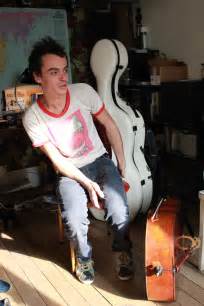A Quote by F. Sionil Jose
What is needed in the theater, in fact for all our art forms, is a vibrant critical tradition.
Related Quotes
The arts have long been an integral and vibrant part of our nation's cultural heritage. In its many forms, art enables us to gain a deeper understanding of ourselves and of our society. Providing us with a unique way to learn about people of other cultures, it allows us to discover all that we have in common. At its best, art can beautify our cities, encourage economic development and social change, and profoundly affect the ways we live our lives.
The Western music tradition is mostly addressed to a public that has a critical mind, and judges the quality of the writing, of the interpretation. And I think it is a great tradition! It pushes the musicians to always go further, and to never stop pushing the limits and explore what can be done with sounds. And great pieces of art were born from that tradition.
Those who feel guilty contemplating "betraying" the tradition they love by acknowledging their disapproval of elements within it should reflect on the fact that the very tradition to which they are so loyal—the "eternal" tradition introduced to them in their youth—is in fact the evolved product of many adjustments firmly but delicately made by earlier lovers of the same tradition.
I think so many great artists are flocking to LA because the downtown art scene is so vibrant, there is cheap living and you can really flourish as an artist there. There is an unbelievably supportive and really smart, talented theatre audience in LA full of young, hungry, vibrant people. It's something that sort of makes me think of what New York must have been like in its downtown theater scene in the 1980s - before my time.
As Americans, we can take enormous pride in the fact that courage has been inspired by our own struggle for freedom, by the tradition of democratic law secured by our forefathers and enshrined in our Constitution. It is a tradition that says all men are created equal under the law and that no one is above it.
Printed prose is historically a most peculiar, almost an aberrant way of telling stories, and by far the most inherently anesthetic: It is the only medium of art I can think of which appeals directly to none of our five senses. The oral and folk tradition in narrative made use of verse or live-voice dynamics, embellished by gesture and expression--a kind of rudimentary theater--as do the best raconteurs of all times. Commonly there was musical accompaniment as well: a kind of one-man theater-of-mixed-means.
Through our own creative experience we came to know that the real tradition in art is not housed only in museums and art galleries and in great works of art; it is innate in us and can be galvanized into activity by the power of creative endeavour in our own day, and in our own country, by our own creative individuals in the arts.
I'm not an advocate of true rhymes, I don't think. I think that everyone who writes musical theater needs to know how to do true rhymes, because that's the tradition of it, but I do think that in order for the art form to grow, it's important to not let tradition get in the way of innovation. There's all kinds of reasons not to use true rhyme in a lyric, like with off-color humor.





































